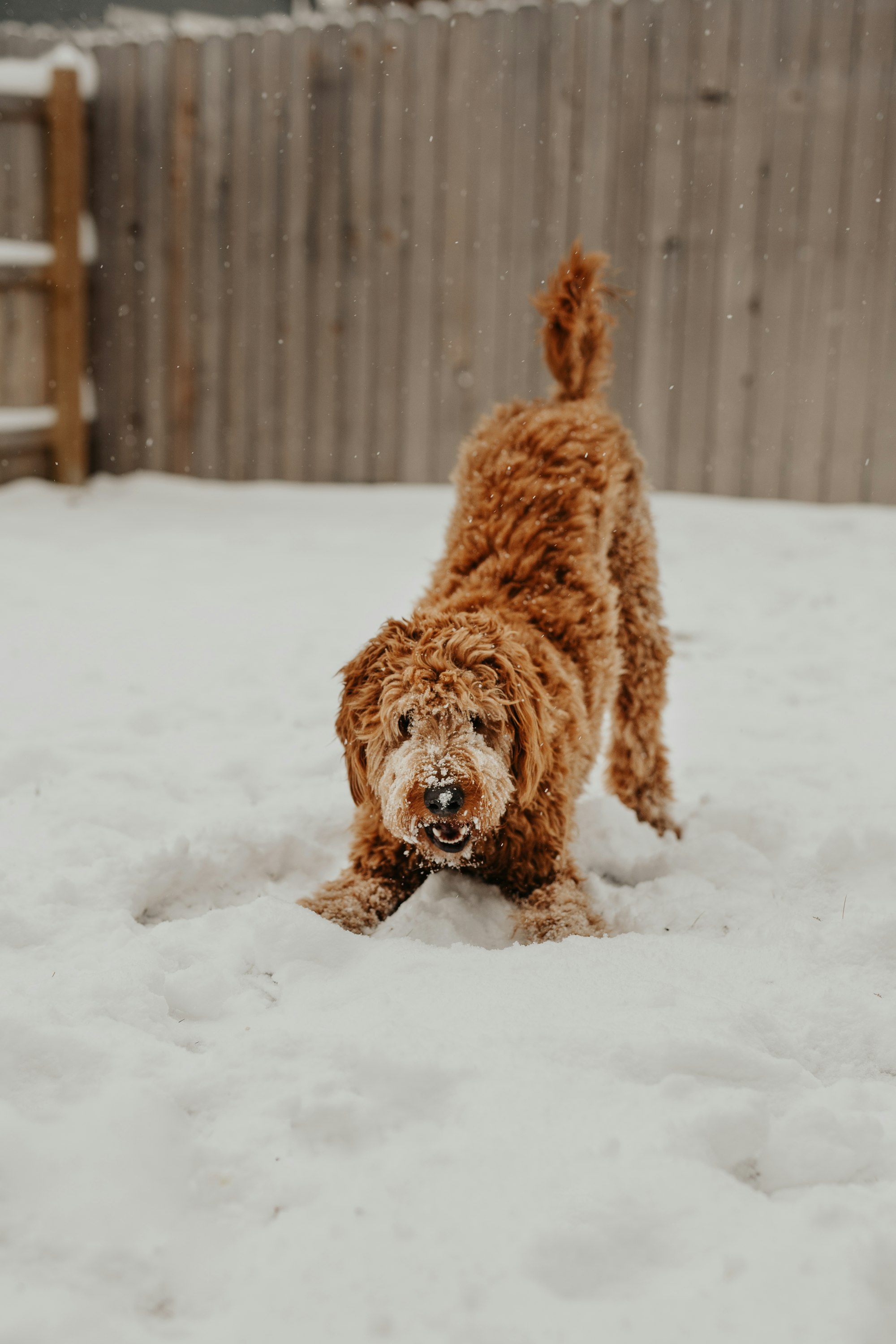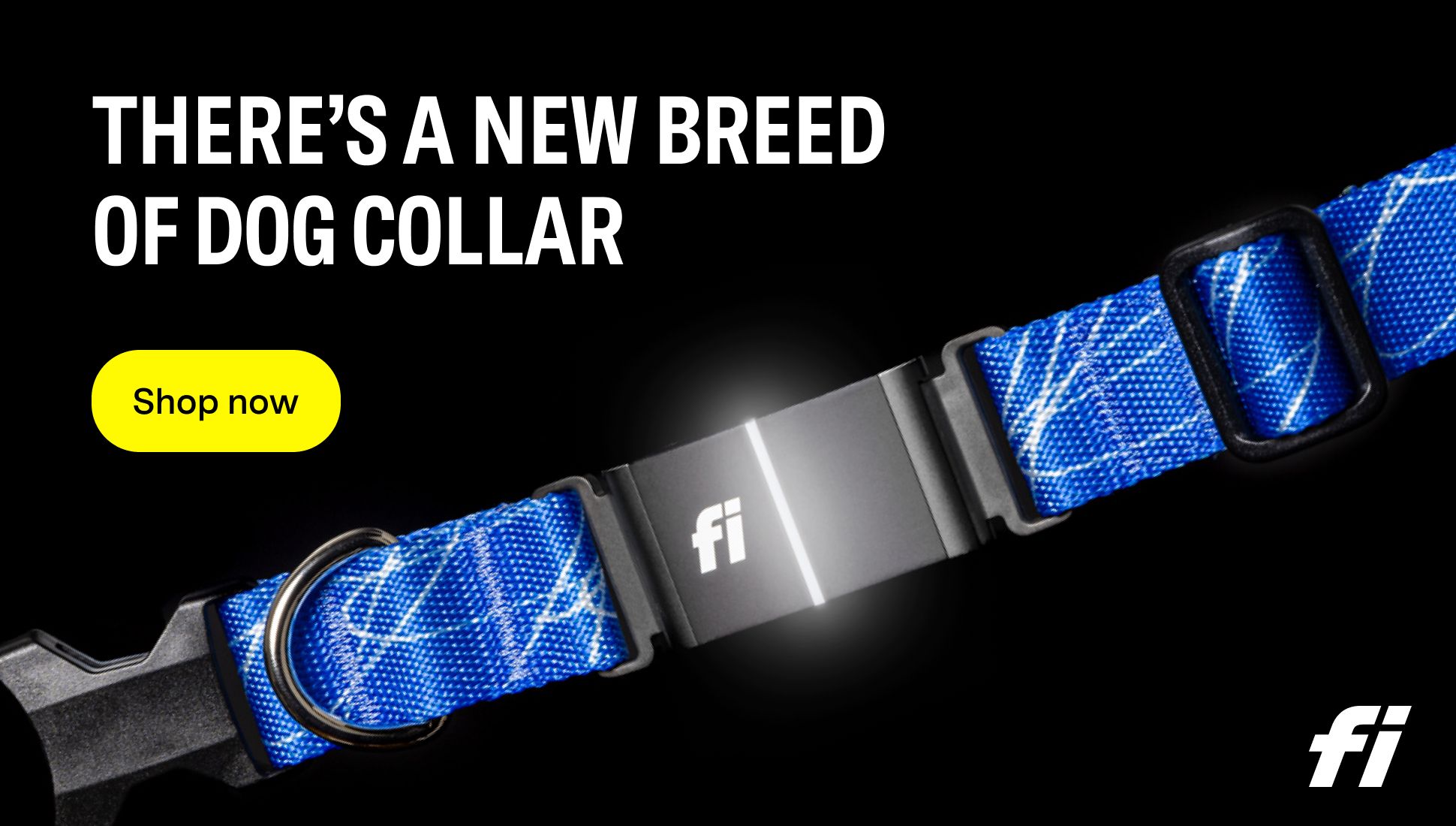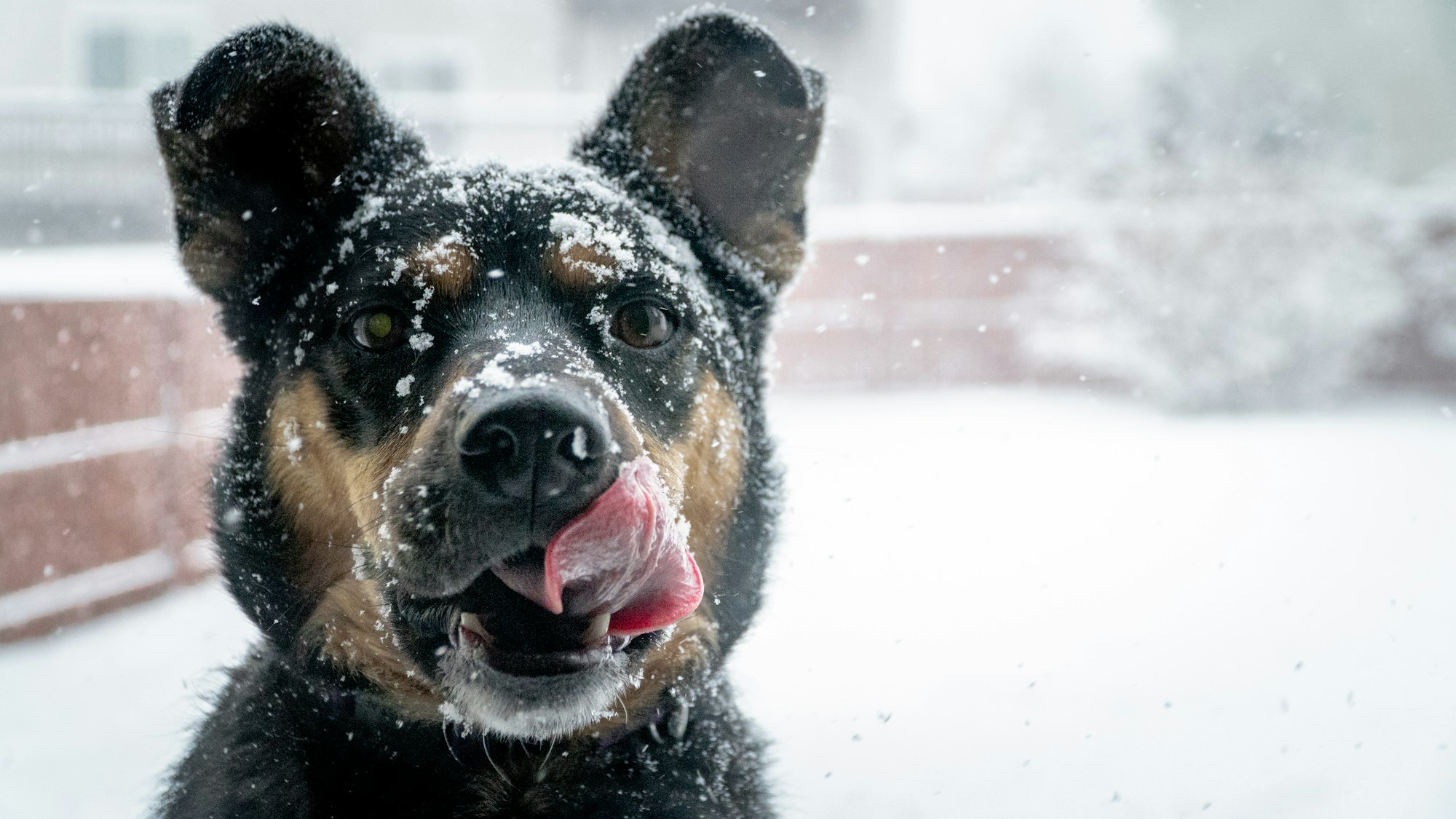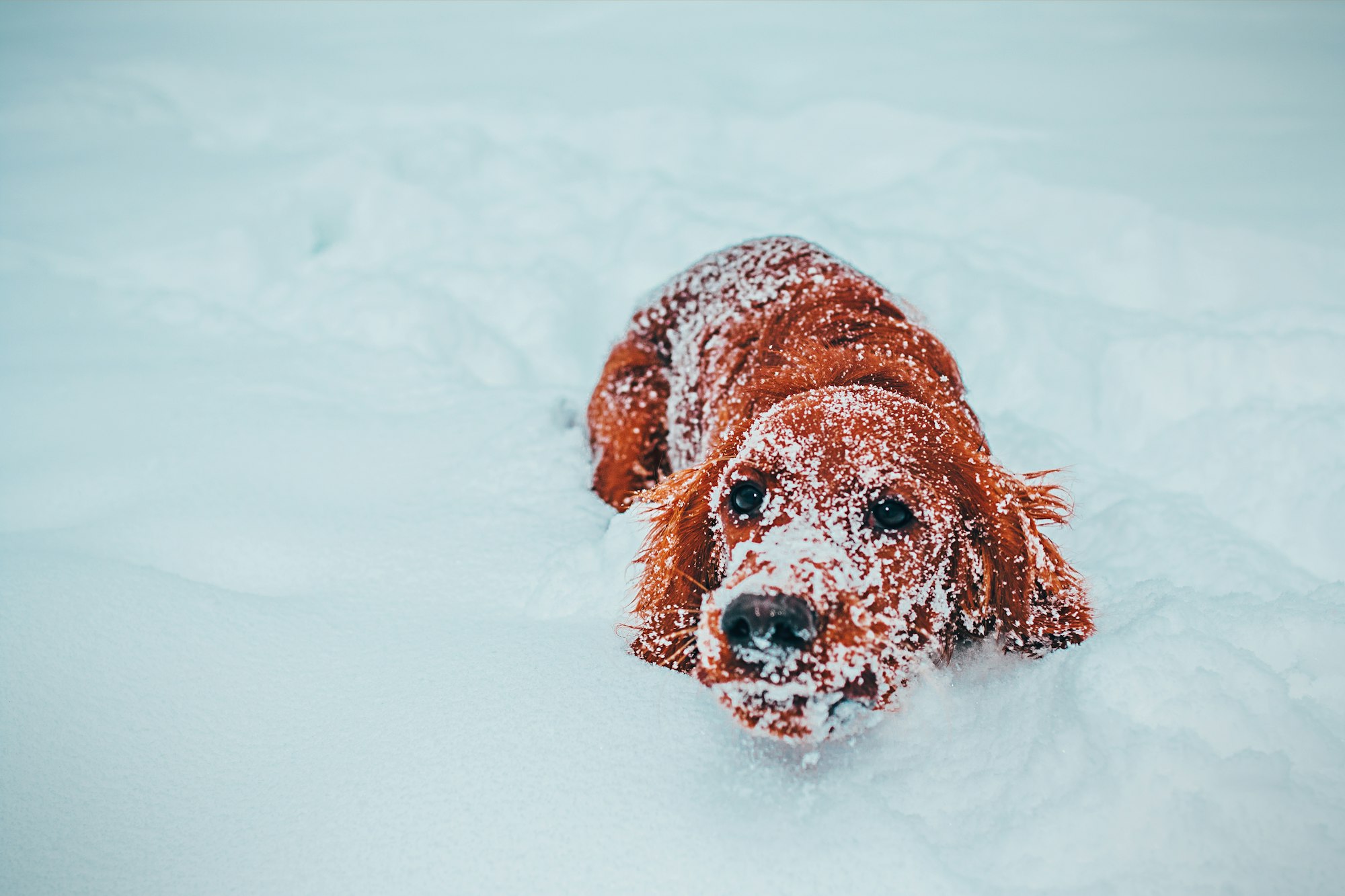Dog owners may often wonder why their furry companions have a penchant for eating snow. While it may seem like a harmless and perhaps amusing behavior, understanding the reasons behind it is important to ensure the safety and well-being of our canine friends. Let's explore why dogs eat snow and whether it is considered normal or not.
Key takeaway:
- Dogs eat snow for various reasons: Dogs may eat snow to hydrate themselves, to experience the cold sensation and novelty, or due to nutritional deficiencies or behavioral issues.
- Eating snow may pose risks to dogs: Potential risks include hypothermia, contaminants in the snow, digestive issues, and snow compaction.
- Preventing dogs from eating snow: Providing fresh water, supervising dogs, and using dog-friendly deicers can help prevent dogs from eating snow.

Why Does My Dog Eat Snow?
Dogs may eat snow for a variety of reasons. One possible reason is that snow is an interesting and novel texture for them to explore. Dogs are curious animals, and the cold, fluffy texture of snow may intrigue them. Dogs may eat snow as a way to quench their thirst. If they are outside and don't have access to water, they may resort to eating snow to hydrate themselves. It is important for dog owners to be aware that eating large amounts of snow can lower a dog's body temperature and potentially lead to hypothermia.
Therefore, it is advisable to monitor your dog's snow consumption and ensure that they do not eat excessive amounts. Dog owners should be cautious about allowing their dogs to eat snow that may be contaminated with chemicals or other substances. If you notice that your dog is consistently eating snow or if you have concerns about their behavior, it is best to consult with a veterinarian to rule out any underlying health issues.

Is It Normal for Dogs to Eat Snow?
It is normal for dogs to eat snow. Dogs are curious creatures and eating snow can be a natural behavior for them. It is important to consider a few factors when your dog eats snow. First, make sure that the snow is clean and free from any harmful substances such as chemicals or pollutants. Second, monitor the amount of snow your dog consumes, as excessive intake can lead to stomach upset or even hypothermia in cold weather. Be mindful of your dog's health and any potential allergies or sensitivities to cold temperatures. If you notice any unusual behavior or adverse reactions after snow consumption, it is best to consult with a veterinarian.
Reasons Why Dogs Eat Snow
Curious about why your dog has a penchant for chowing down on snow? Well, wonder no more! In this section, we'll explore the fascinating reasons behind dogs' snow-eating habits. From the possibility of using snow as a source of hydration to the thrill of the cold sensation and novelty it brings, and even potential nutritional deficiencies or behavioral issues—get ready to uncover the quirks behind your furry friend's snow snacking adventures!
1. Hydration
Hydration is one of the reasons why dogs eat snow. Here are some factors to consider:
- Dogs may eat snow to satisfy their thirst when water is not readily available. Snow can provide a source of liquid to help hydrate their bodies.
- During cold weather, dogs may be more prone to dehydration due to dry air and increased activity. Eating snow can be a way for them to obtain moisture.
- It's important to note that consuming large amounts of snow may not effectively hydrate a dog. Since snow contains a high percentage of air, it can actually contribute to further dehydration. Dogs would need to consume a significant volume of snow to meet their hydration needs.
- Dogs may eat snow out of curiosity or as a form of play. The cold sensation and novelty of snow can be enticing to them.
- When considering hydration, it's crucial to provide dogs with fresh, clean water in addition to any snow they may consume. Water is the best source of hydration for dogs and should be readily available to them at all times.
2. Cold Sensation and Novelty
- Dogs may experience a refreshing and novel sensation due to the Cold Sensation they feel when eating snow. Their heightened sense of temperature allows them to appreciate the contrast between the cold snow and their warm mouths.
- The curiosity of dogs is piqued by the Novelty of snow. Since it is not a common element in their everyday environment, they are naturally attracted to explore and taste it.
3. Nutritional Deficiency or Behavioral Issues
Dogs may eat snow due to either nutritional deficiencies or behavioral issues. If a dog's regular diet lacks essential vitamins, minerals, or proteins, they might be tempted to consume snow in order to fulfill their nutritional needs. Nutritional deficiencies can lead dogs to instinctively search for alternative sources of nutrients, including snow.
Similarly, dogs with behavioral issues such as pica, which is characterized by the consumption of non-food items, may display snow-eating behavior. This behavior can be a result of boredom, anxiety, or a compulsive disorder. In these cases, dogs may find solace or comfort in eating snow.
It is crucial to address the root cause of the nutritional deficiency or behavioral problem instead of allowing the dog to continue consuming snow. A well-balanced and nutritious diet tailored to meet the specific needs of the dog should be provided. Seeking guidance from a veterinarian or a professional animal behaviorist can assist in identifying and resolving any underlying health or behavioral issues.
In an incident from the early 19th century, explorers in Alaska reported that their sled dogs would consume snow during their demanding journeys, possibly as a supplement to their diet or to alleviate boredom. This observation emphasizes the natural instinct of dogs to seek alternative sources of sustenance when faced with nutritional deficiencies or behavioral issues. By comprehending and addressing these underlying concerns, we can ensure the well-being of our beloved furry companions.

Is Eating Snow Safe for Dogs?
Eating snow can indeed be safe for dogs, but there are important factors to keep in mind. Dogs might feel tempted to consume snow due to its unique texture and refreshing nature. However, it is crucial to ensure that the snow they eat is clean and free from any contaminants.
One consideration is the potential risk associated with eating snow, as it can sometimes contain harmful substances such as chemicals or bacteria from the surrounding environment. This is particularly true in urban areas where snow may be exposed to pollution or hazardous materials. If the snow has been treated with salt or de-icing chemicals, it can lead to digestive issues and irritation in dogs.
To guarantee the safety of your dog, it's best to supervise them while they eat snow and limit their intake. If you observe any signs of discomfort or digestive problems after your dog consumes snow, it is important to consult with a veterinarian.
Potential Risks of Dogs Eating Snow
Winter can be a wonderland for our furry friends, but have you ever wondered about the potential risks of dogs eating snow? Let's dive into the different dangers lurking beneath that snowy surface. From the risk of hypothermia and exposure to contaminants, to potential digestive issues and snow compaction, we'll explore the factors that dog owners should be aware of when it comes to their pups munching on that tempting white fluff. Stay tuned to discover the hidden hazards of this chilly indulgence!
Contaminants
Contaminants in Snow
| Contaminant | Potential Effects |
| 1. Chemical pollutants | Can cause toxicity and harm to the dog's organs |
| 2. Road salts | May lead to dehydration and electrolyte imbalances |
| 3. Bacteria and viruses | Can cause gastrointestinal infections and diseases |
| 4. Pesticides | May lead to poisoning and neurological issues |
| 5. Heavy metals | Can accumulate in the body and lead to long-term health problems |
When dogs eat snow, they may be exposed to various contaminants,[2] some of which can have negative effects on their health. Chemical pollutants found in snow can be toxic to dogs and may harm their organs. Road salts used for melting ice can lead to dehydration and electrolyte imbalances if ingested in large quantities. Bacteria and viruses present in the snow can cause gastrointestinal infections and diseases in dogs. Pesticides found in snow can lead to poisoning and neurological issues. Heavy metals, such as lead and mercury, can accumulate in the body over time and result in long-term health problems for dogs. It is important to prevent dogs from eating contaminated snow to ensure their well-being.
Digestive Issues
Dogs may experience digestive issues when they eat snow due to several factors:
- Cold temperature: Snow is extremely cold, and when dogs consume it, it can cause a drop in their body temperature, leading to digestive discomfort.
- Irritation: The texture of snow may be abrasive for a dog's digestive system, causing irritation and inflammation.
- Presence of contaminants: Snow can contain various contaminants like dirt, bacteria, pesticides, or chemicals from deicers, which can upset a dog's stomach and cause gastrointestinal issues.
- Ingesting large quantities: Dogs that eat large amounts of snow may end up swallowing air along with it. This can result in bloating, gas, and discomfort.

How to Prevent Dogs from Eating Snow?
When it comes to our furry friends gobbling up snow, prevention is key! In this section, we'll dive into effective strategies for keeping dogs from indulging in chilly snacks. From ensuring fresh water availability to close supervision and dog-friendly deicers, we'll explore practical ways to help curb this snow-eating habit. So, let's discover how we can keep our pups safe and snow-free!
When it comes to our furry friends gobbling up snow, prevention is key! In this section, we'll dive into effective strategies for keeping dogs from indulging in chilly snacks. From ensuring fresh water availability to close supervision and dog-friendly deicers, we'll explore practical ways to help curb this snow-eating habit. So, let's discover how we can keep our pups safe and snow-free!
1. Provide Fresh Water
Providing fresh water is crucial in preventing dogs from eating snow. Here are some steps to ensure your dog has access to clean and fresh water:
- Always have a clean water bowl available for your dog both indoors and outdoors.
- Keep an eye on the water bowl throughout the day and refill it with fresh water as needed.
- Change the water at least once a day to prevent bacteria or contaminants from accumulating.
- If your dog spends a lot of time outdoors, consider getting a heated water bowl to prevent freezing in cold weather.
- During outdoor activities, bring a portable water bottle or a collapsible water bowl and offer your dog water regularly.
It is important to provide fresh water for your dog because consuming snow as a source of hydration may not be sufficient. Snow can be contaminated with chemicals, dirt, or bacteria, and it may not provide the necessary hydration for your dog's overall well-being. By providing fresh water, you can ensure that your dog stays properly hydrated and avoids any potential risks associated with consuming snow.
2. Keep Dogs Supervised
When it comes to keeping dogs safe while they are eating snow, it is crucial to keep them supervised. This helps guarantee their well-being and prevents any potential risks or accidents.
- Monitor their behavior: Watch your dog closely while they are playing in the snow. Look out for any signs of discomfort, such as excessive shivering or reluctance to come indoors.
- Prevent overexposure: Limit the amount of time your dog spends outside in the snow. Keeping dogs supervised and avoiding extended exposure to cold temperatures can prevent hypothermia or other health issues.
- Supervise their eating habits: If your dog has a habit of eating snow, keep a close eye on them. Eating excessive amounts of snow can lead to digestive issues, like an upset stomach or diarrhea.
- Remove contaminants: Snow can contain various contaminants, such as chemicals from de-icers or harmful substances. Make sure to clear the area where your dog plays to minimize the risk of ingesting any harmful substances.
- Provide fresh water: Dogs may eat snow when they are thirsty. Keeping dogs supervised and ensuring they have access to plenty of fresh water indoors can help them stay properly hydrated.
By following these suggestions and keeping dogs supervised while they are playing in the snow, you can ensure their safety and well-being during the winter season.
3. Use Dog-Friendly Deicers
When it comes to preventing dogs from eating snow, using dog-friendly deicers can be an effective solution. Here are some important points to consider:
- Choose deicers specifically designed for dogs. These deicers are formulated to be safe for dogs when licked or ingested.
- Look for deicers that are free from harmful chemicals such as salt or other substances that can be toxic to dogs.
- Opt for deicers with natural ingredients like calcium magnesium acetate or potassium chloride. These are less likely to cause any harm if consumed by your dog.
- Read the labels and follow the instructions for proper usage of the deicer. Applying too much deicer can be harmful to your dog's paws or skin.
- Consider using pet-friendly alternatives to deicers, such as sand or cat litter, to prevent your dog from slipping on icy surfaces without the risk of ingestion.
- Regularly clean your dog's paws after walks to remove any residue from deicers that may have been brought indoors.
- Keep an eye out for any signs of discomfort or adverse reactions in your dog after using a deicer. If you notice any issues, consult with your veterinarian.
By using dog-friendly deicers, you can ensure the safety and well-being of your furry friend during the snowy winter months.
Some Facts About Why Does My Dog Eat Snow:
- ✅ Dogs eat snow for various reasons, including thirst, ancestral instincts, health conditions, or simply because they enjoy it.
- ✅ Eating clean snow in small quantities is generally safe for dogs, but there are potential dangers such as toxic substances and harmful objects hidden in the snow.
- ✅ It is important to prevent dogs from eating dirty, discolored, partially melted snow, or snow from heavily trafficked areas or snowplow piles.
- ✅ To discourage dogs from eating snow, provide them with clean drinking water, use a leash to avoid snow and puddles containing chemicals, bring distractions like toys or treats on walks, and consider using booties or cleaning their paws after being in the snow.
- ✅ Despite precautions, dogs may still consume harmful substances, so it is important to seek veterinary advice if necessary.

Frequently Asked Questions
Why does my dog eat snow?
Dogs eat snow for various reasons, including thirst, ancestral instincts, health conditions, or simply because they enjoy it. Some dogs may eat snow out of curiosity or to cool down when they feel hot. Others may eat snow because they are attracted to its texture, cold temperature, and taste.
Is eating snow safe for dogs?
Eating clean snow in small quantities is generally safe for dogs. However, there are potential dangers such as toxic substances and harmful objects hidden in the snow. It is important to prevent dogs from eating dirty, discolored, partially melted snow, or snow from heavily trafficked areas or snowplow piles.
Can eating snow lead to health problems in dogs?
Yes, excessive eating of snow can indicate an underlying health condition, such as diabetes or kidney disease. Consuming a large amount of snow can lead to health problems like intestinal congestion with diarrhea, vomiting, and even symptoms of pneumonia. Snow can also contain bacteria or harmful substances that can cause nausea, diarrhea, dehydration, and other serious health issues in dogs.
How can I discourage my dog from eating snow?
To discourage dogs from eating snow, provide them with clean drinking water to address their thirst. Use a leash to avoid snow and puddles containing chemicals. Bring distractions like toys or treats on walks to redirect their attention. Consider using booties to protect their paws from injuries and cleaning their paws after being in the snow. Seek veterinary advice if necessary.
Are there any specific precautions I should take when my dog is in a winter wonderland?
When taking a dog out in the snow, it is important to protect them from the cold and wind by using a coat or appropriate clothing. Dogs should not be allowed to dig into hard-packed snow or chunks of ice, as it can cause dental issues. Keep them on a leash to prevent them from accessing contaminated snow or surfaces treated with de-icing products. Consider using dog boots or training dogs to wipe their paws after walks to prevent ingestion of salt or chemicals they may have stepped in.
When should I seek veterinary advice regarding my dog's snow eating behavior?
If your dog exhibits significant changes in behavior, shows severe nausea or other signs of illness after eating snow, it is advisable to seek veterinary advice. Additionally, if your dog has an underlying health condition, such as diabetes or kidney disease, it is important to consult with a veterinarian to ensure their general state of health is not negatively impacted by their snow consumption.





